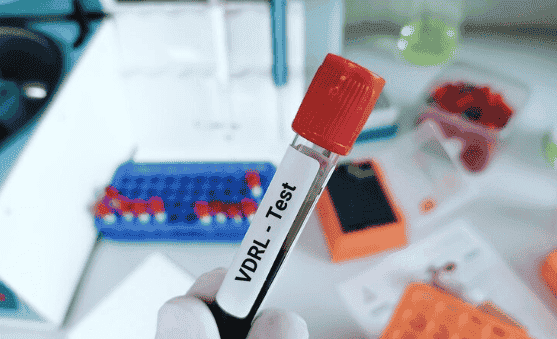Syphilis is a sexually transmitted infection (STI) that can have serious health consequences if left untreated. Early detection is crucial for effective treatment and prevention of complications. One of the key tools in diagnosing syphilis is the VDRL blood test. In this blog, we’ll explore why the VDRL blood test is important for early detection of syphilis and how it can help you stay healthy.
What is the VDRL Blood Test?
The VDRL (Venereal Disease Research Laboratory) blood test is a screening test used to detect the presence of syphilis. It is a non-treponemal test, which means it detects antibodies that are produced in response to substances released by damaged cells, rather than directly identifying the syphilis bacteria (Treponema pallidum) itself. The test is commonly used because it is simple, quick, and relatively inexpensive.
How Does the VDRL Blood Test Work?
The VDRL blood test works by detecting antibodies in the blood that are produced in response to the syphilis infection. When a person has syphilis, their body produces these antibodies to fight off the infection. The VDRL test identifies these antibodies, which indicates a possible syphilis infection.
It’s important to note that while the VDRL test is a useful screening tool, it is not specific to syphilis. This means that a positive result does not necessarily confirm an infection; it simply indicates the need for further testing. Additional tests, such as the FTA-ABS (Fluorescent Treponemal Antibody Absorption) test, are needed to confirm a syphilis diagnosis.
Why is Early Detection Important?
Early detection of syphilis is critical for several reasons:
-
Effective Treatment: Syphilis can be effectively treated with antibiotics, especially in its early stages. Early treatment can prevent the progression of the disease and avoid complications such as damage to the heart, brain, and other organs.
-
Preventing Spread: By identifying and treating syphilis early, individuals can reduce the risk of transmitting the infection to their partners. This is crucial for controlling the spread of STIs in the community.
-
Avoiding Complications: Syphilis progresses through several stages: primary, secondary, latent, and tertiary. Without treatment, syphilis can lead to severe health issues, including neurological problems and cardiovascular damage. Early detection ensures that the infection is treated before it reaches these advanced stages.
Who Should Get a VDRL Blood Test?
The VDRL blood test is typically recommended for individuals who are at risk of syphilis or who have symptoms that may indicate an infection. This includes:
-
Individuals who are sexually active with multiple partners.
-
Pregnant women, as syphilis can be transmitted from mother to baby.
-
People with symptoms such as sores or rashes that could be related to syphilis.
-
Individuals who have been in contact with someone diagnosed with syphilis.
Conclusion
The VDRL blood test plays a vital role in the early detection of syphilis, offering a simple and effective means of identifying this potentially serious infection. While it is not a definitive diagnostic tool on its own, it is an essential first step in the process of detecting and treating syphilis. By getting tested and seeking prompt treatment, individuals can protect their health and contribute to the prevention of the spread of syphilis. If you believe you may be at risk or are experiencing symptoms, consult with a healthcare provider about getting a VDRL blood test to ensure your well-being.



